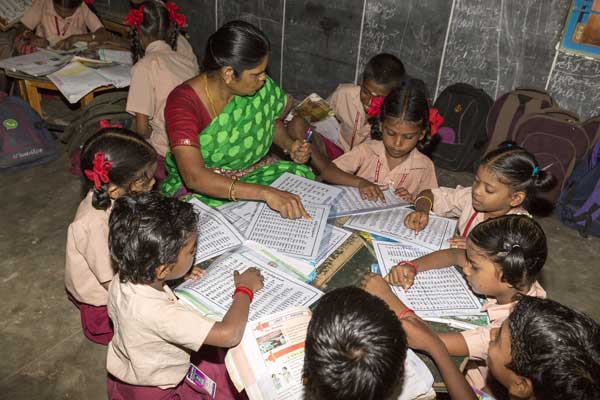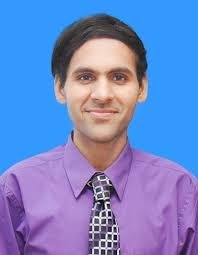Exploring teachers' identity towards mental health well-being

Teachers play a vital role in shaping the future of our society by imparting knowledge, skills, and values to their students. However, teachers have challenges and responsibilities that can affect their mental well-being.
Dr Munir Moosa Sewani, an expert in teacher education in Pakistan, spoke about the importance of teachers' identity and mental well-being at a seminar organised by the Centre for the Study of Global Development. He shared his insights on Munir's model of teachers' identity exploration and discussed some challenges teachers face in their professional and personal lives.
Dr Sewani advised that teachers avoid assumptions about their students and respect their identities. Teachers have many students from different backgrounds, and it is essential to understand that every student has a unique identity. Dr Sewani recommended that teachers establish an authentic connection with themselves and their students and collaborate with others to break prejudices and social constructs.
 Dr Sewani also emphasised the power of narratives and how important it is for teachers to share their experiences with others and learn from others in communities of practice. However, Dr Sewani had reservations about teachers sharing their ideologies with their students.
Dr Sewani also emphasised the power of narratives and how important it is for teachers to share their experiences with others and learn from others in communities of practice. However, Dr Sewani had reservations about teachers sharing their ideologies with their students.
To help teachers explore their identity and improve their mental well-being, Dr Sewani designed Munir's model of teachers' identity exploration. This model has two dimensions: the personal dimension and the professional dimension. Teachers often focus on their professional identities but should also explore their personal identities.
Dr Sewani believes that teachers should reflect on their personal experiences and explore their insecurities, which they tend to keep in their subconsciousness. This could be detrimental to their self-acceptance, and it could also affect their teaching. By exploring their personal identity, teachers can improve their mental well-being, better understand themselves, and become more effective teachers.
The model also highlights the importance of balancing the personal and professional dimensions of a teacher's identity. Dr Sewani recommended that teachers not neglect their personal lives and make time for themselves, their families, and their hobbies. By doing so, they can improve their mental health and become better teachers.
Moreover, the model emphasises the importance of communication and networking. Dr Munir's model recommends that teachers communicate with their colleagues, participate in online communities, and collaborate with colleagues, parents and students from different backgrounds.
During the Q and A, Dr Leigh-Anne Perryman asked whether there were exceptions where teachers could share their ideologies in the classroom as she’s a climate activist and shared her beliefs on climate change with her students. Dr Sewani said that teachers can share their ideologies but recommends not sharing religious and cultural ideologies, which can exclude students.
Dr Alison Buckler asked whether the model primarily benefits teachers' well-being, the learners they work with, or both. She also asked how relevant the model is in contexts where teachers are actively discouraged from looking inward and being reflective and agentive.
Dr Sewani mentioned that the model applies to prospective and current teachers for self-improvement, which would also benefit the learners they work with. The model would assist teachers in contexts where they are discouraged from being reflective as they can utilise the model on their own without relying on others to guide them with the model.
Dr Sewani's insights on teachers' identity and mental well-being are valuable for all teachers. Teachers play a vital role in shaping the future of our society, and their mental well-being is crucial for their effectiveness as teachers. Munir's model of teachers' identity exploration can help teachers explore their personal and professional dimensions and improve their mental well-being.
Connect with us
Whatever your reasons for wanting to connect with us, you can contact us via email or social media on the addresses below
CSGD email
CSGD on Bluesky
CSGD on LinkedIn
Sign up to our mailing list to receive the latest news on our research, events and publications.
.jpg)